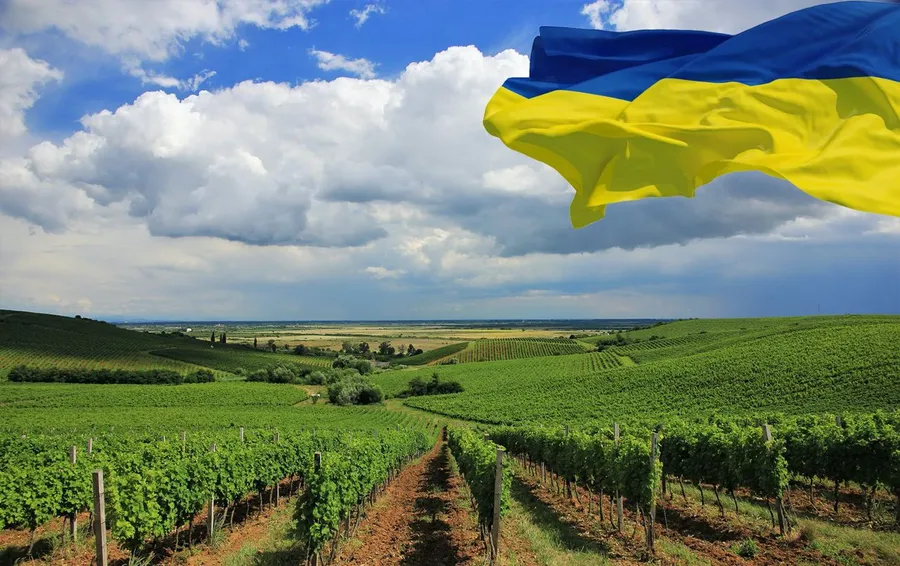
🗺️ Interesting & Innovative Wine Regions of Ukraine 🇺🇦
A general overview of all wine regions 🧭, PGIs & PDOs 🏷, with a focus on Zakarpattia 🏞, the Northern Regions 🌿 & the Black Sea Region 🌅 including Prydunaiska Bessarabia & Lake Yalpuh.
“Ukrainian wine should be known all over the world, not only as a product but also as a cultural phenomenon.”
(✝ Arsen Fedosenko, 1977-2024, photographer 📸, sommelier 🍷, winemaker 🚜 - and “Hero of Freedom” 🪖)
Ukraine 🇺🇦 has been in the global news headlines a lot recently. Unfortunately, mainly for all the wrong reasons. We decided to write about Ukraine to highlight the bravery and ingenuity of the agriculture industry 💙💛. And while the agricultural sector is huge and diverse 🚜, we’re mainly interested in a fairly small, but growing and very dynamic area: Ukrainian Wine 🇺🇦🍷.
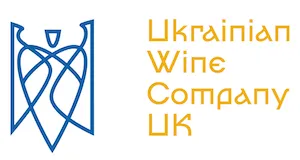
Looking for a shortcut or prefer to drink along while learning dry facts about wine history and regional climates? Head to the Ukrainian Wine Company 🛒. They work with winemakers in Ukraine 🤝 and offer plenty of tasty bottles in their online shop 👍. We ourselves have teamed up with them to organise our private tasting and discovered a lot of exciting wines through them. 😍
In the post about our tasting 🍷, we also tell why we wanted to learn more about Ukrainian wine in the first place. It all goes back to a trip to Ukraine in 2001, the friendly people & amazing hospitality we experienced there. 😊🍽️ And if you want to pair Ukrainian wine with Ukrainian food in London 📍, we cannot recommend the excellent Mriya Neo Bistro on Old Brompton Road enough! 🧑🍳
📜 History of Wine in Ukraine
Many people have probably heard that Georgia 🇬🇪 traces back its traditional winemaking history to a time when vines were not commonly grown in many other places around the world at all. 🏺
Given the fairly close proximity to Ukraine 🗺️, it might not surprise that Ukrainian winemaking history also stretches back thousands of years. 💡
Over the past hundred years or so, the history of winemaking in Ukraine can perhaps best described as a rollercoaster 🎢 with various Russian and Soviet regimes either boosting or disrupting production. 📉
Since the Soviet Union collapsed in the early 1990s, winemaking has gradually become a growing industry again 📈. This fairly recent development was helped by changes in local laws around 2006 ⚖️. The new situation inspired people 🎉 to open up new wineries 🪴, experiment with different grape varieties 🍇 and techniques & produce some truly oustanding and unique wines 🍷.
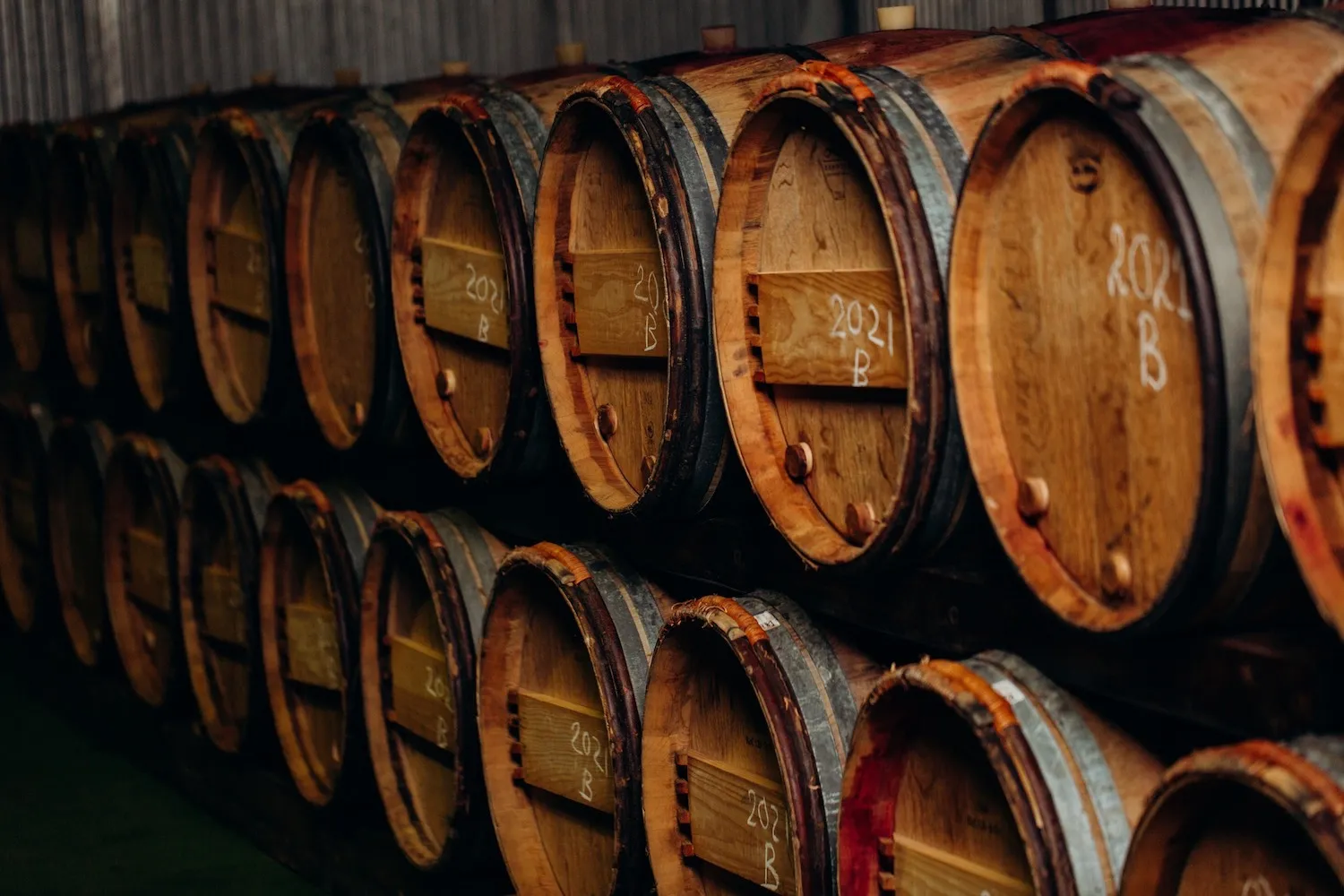
(📷 Photo of wine ageing in oak barrels from Facebook: Stakhovsky Wines, 2 Oct 2023.)
Promoting these transformative changes, Wines of Ukraine 🇺🇦 have taken on the task to tell the world about what the country has to offer 📢.
Modern Ukrainian winemakers focus on quality in combination with a curiosity to try out new ideas and blends, while building on its historic roots and local grape varieties 🍇.
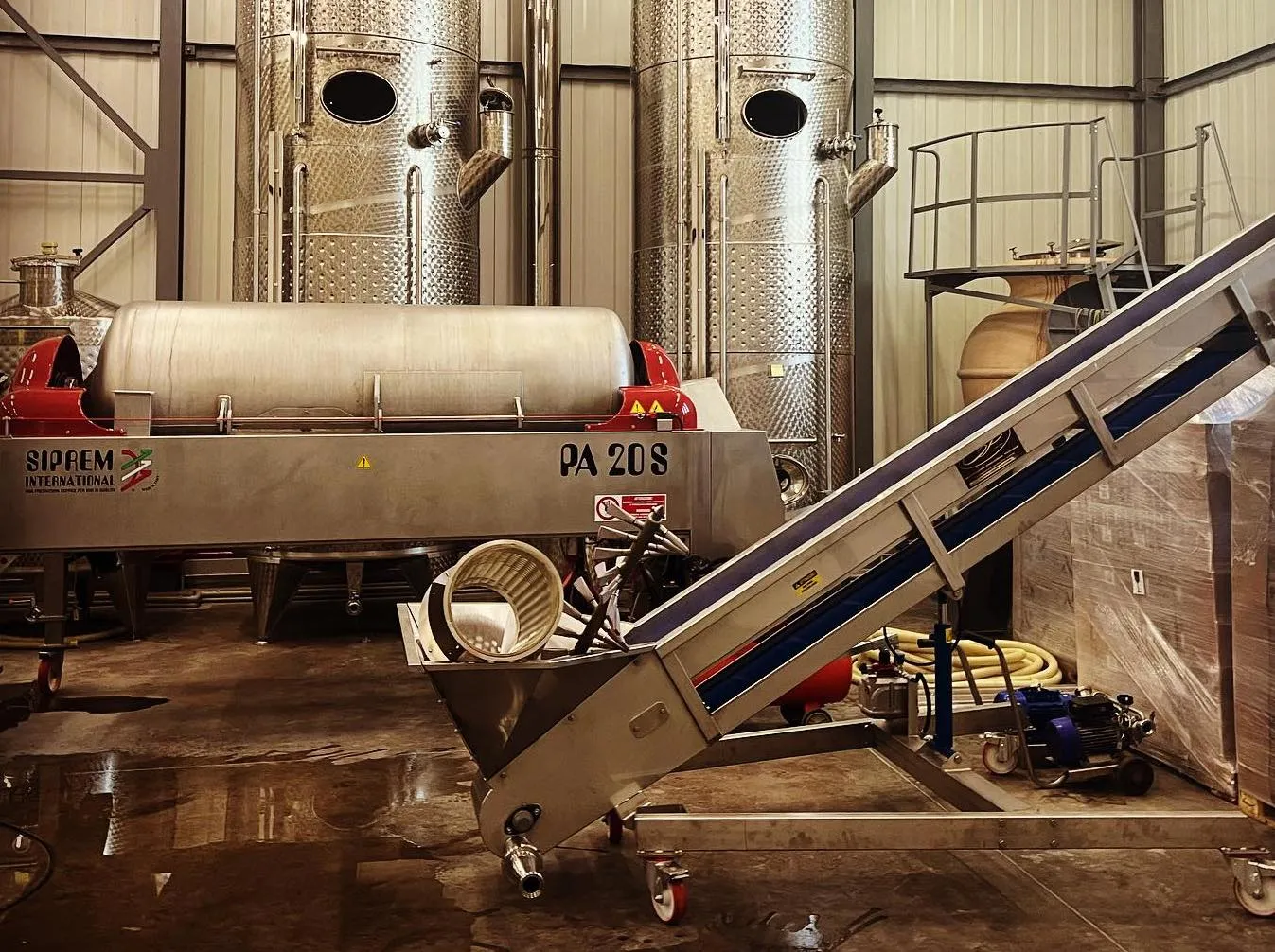
(📷 Photo of modern winemaking equipment from Facebook: Beykush Winery, 23 Sep 2023.)
📍 Modern Ukrainian Wine Regions
Ukraine is a big country with different landscapes and and climates. Many wine producers are located in the South along the Black Sea Coast. However, vineyards have also been planted in inland areas. Even some regions that traditionally have not been known much for winemaking in the centre of the country become increasingly more attractive for wine growing due to global warming.
🗺 Regional Overview
To get a general overview of Ukrainian wine, it is probably best focus on the modern geographic wine regions promoted by Wines of Ukraine 🗺.
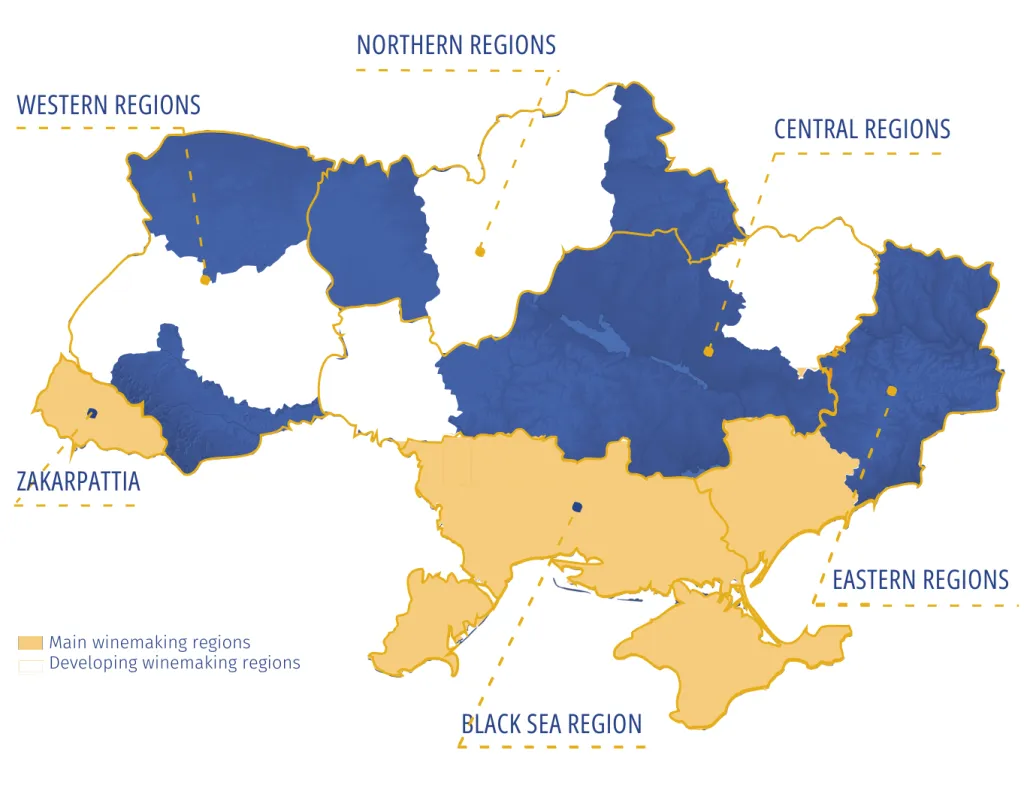
(Map from Wines of Ukraine: Regions.)
- Zakarpattia (north-west)
- Western Regions
- Northern Regions
- Central Regions
- Eastern Regions
- Black Sea Region (south-west)
We will focus on just three of them, mainly because
we already tasted wines from those areas:
Zakarpattia 🏞, Northern Regions 🌿 & Black Sea Region 🌅.
We will go through them roughly in clockwise order, starting in the
north-west of Ukraine.
The Black Sea Region and Zakarpattia are the two most important areas right now 🚛. The Northern Regions are gaining some traction due to climate change 🌡 and entrepreneurial spirit 👷.
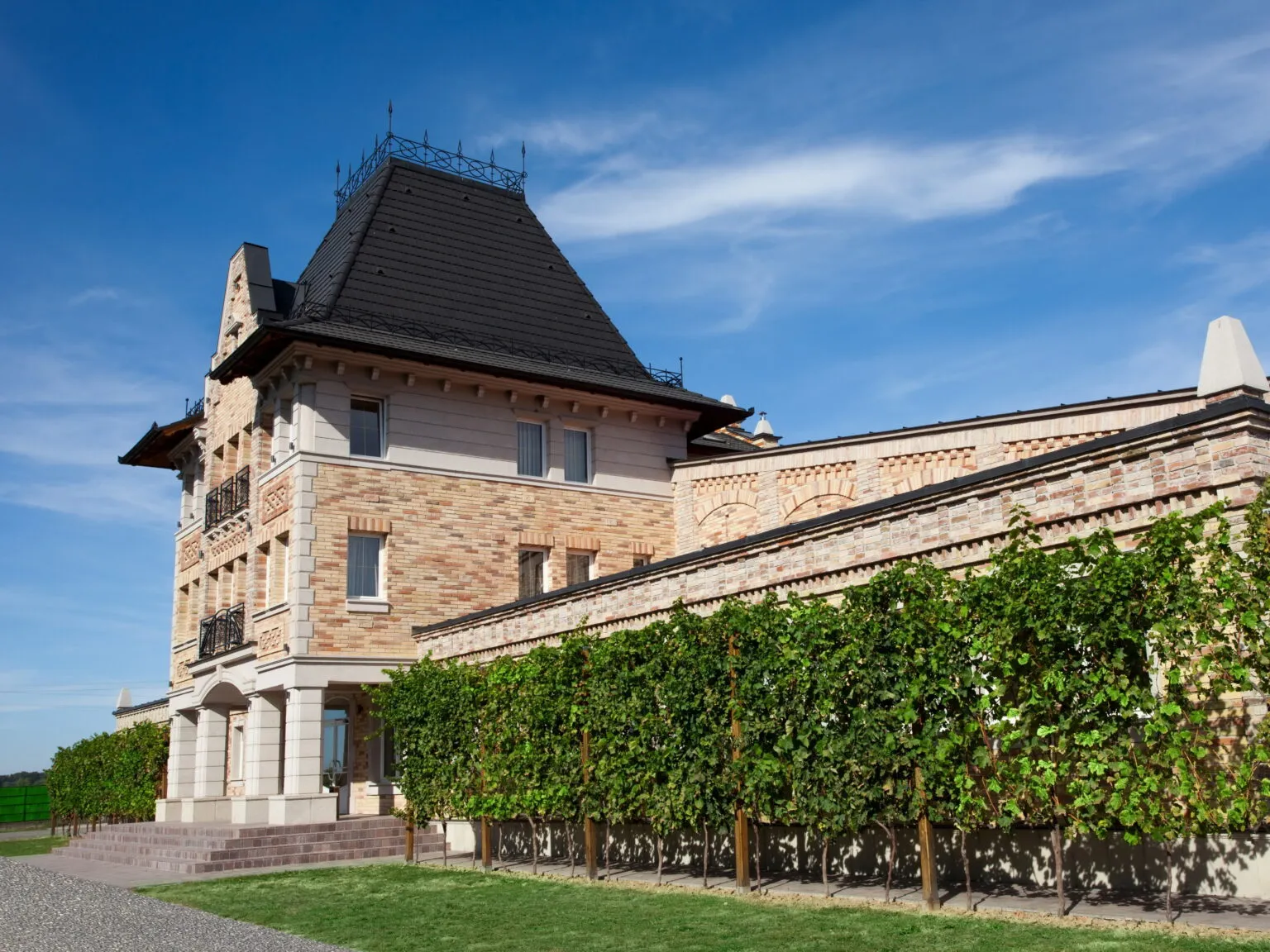
(📷 Photo of Chateau Chizay from BRAND UKRAINE/ukraine.ua: Ukrainian wine.)
🗂 Current Protected Geographical Indications (PGIs)
In contrast to many European wine producing countries 🇪🇺 with large, complex systems and regulations of geographic indications 😵💫, Ukraine is curently working on structuring its modern wine regions, which means that everything is still moving and developing 🧐.
Surprisingly, we did not find an up-to-date article online that lists them all 😱, so we looked into the official register to find out what the situation actually is. Not all registrations included a Latin transliteration, so when writing the names in English, you might come across some minor variations in spellings 😕.
As of October 2024 📅, the State Register of Ukraine managed by the Ukrainian National Office for Intellectual Property and Innovations (UANIPIO) 🏢 lists 11 protected geographical indications (PGIs & PDOs) for wine 🍷. However, only 6 of them actually refer to Ukrainian regions 🇺🇦 and they were all granted between 20 Dec 2023 and 24 Jul 2024, so all fairly new 🚨.
📍 The 3 generic PGIs roughly from north to south are:
- ЗАКАРПАТТЯ or Zakarpattia
(2024, also “Transcarpathia” and “ЗАКАРПАТСЬКЕ ВИНО”/“Transcarpathian Wine”, registration number 3129) - АША-АБАГ or Asha-Abag
(2023, also “Acha-Abag” registration number 3126) - Придунайська Бессарабія or Prydunaiska Bessarabia
(2023, also “Danube/Danubian Bessarabia”, registration number 3127)
Within the PGI system there is also a stricter category of PGIs called Protected Designations of Origin (PDO) that usually applies to a smaller region.
📍 There are 3 PDOs registered with generally higher quality requirements, also roughly ordered from north to south:
- Долина Фрумушика or Frumushyka Valley
(2024, registration number 3132) - ШАБАГ or CHABAG
(2023, also “Shabag”, according to winemaker SHABO, this PDO is based on “the ancient historical name of this region” - see SHABO: Responsible Business, registration number 3125) - Ялпуг or Yalpuh
(2023, also “Yalpug”, registration number 3128)
So far, all these PDOs are in the Odesa subregion 🌅. Surely, this is just the first step. As Ukraine is right now building up its modern geographic wine classification 🗂, we expect this list to evolve and get longer over time. And while some of those PGIs and PDOs might not yet be on all the labels right now 🆕, we’re pretty sure they will be adopted quickly for new vintages 🏷.
🏞 Zakarpattia
Starting in the north-west, Zakarpattia connects Ukrainian winemaking 🇺🇦 to other Central and Eastern European 🇪🇺 wine regions and traditions such as Tokaj 🍯 primarily in Hungary 🇭🇺, but maybe less well known, also stretching into Slovakia 🇸🇰. The Zakarpattia wine region is heavily influenced by the Carpathian Mountains 🏞 with sun-drenched slopes 🔆, natural protection against cold weather ❄️, unique microclimates and nutrient-rich, porous volcanic soils 🌋.
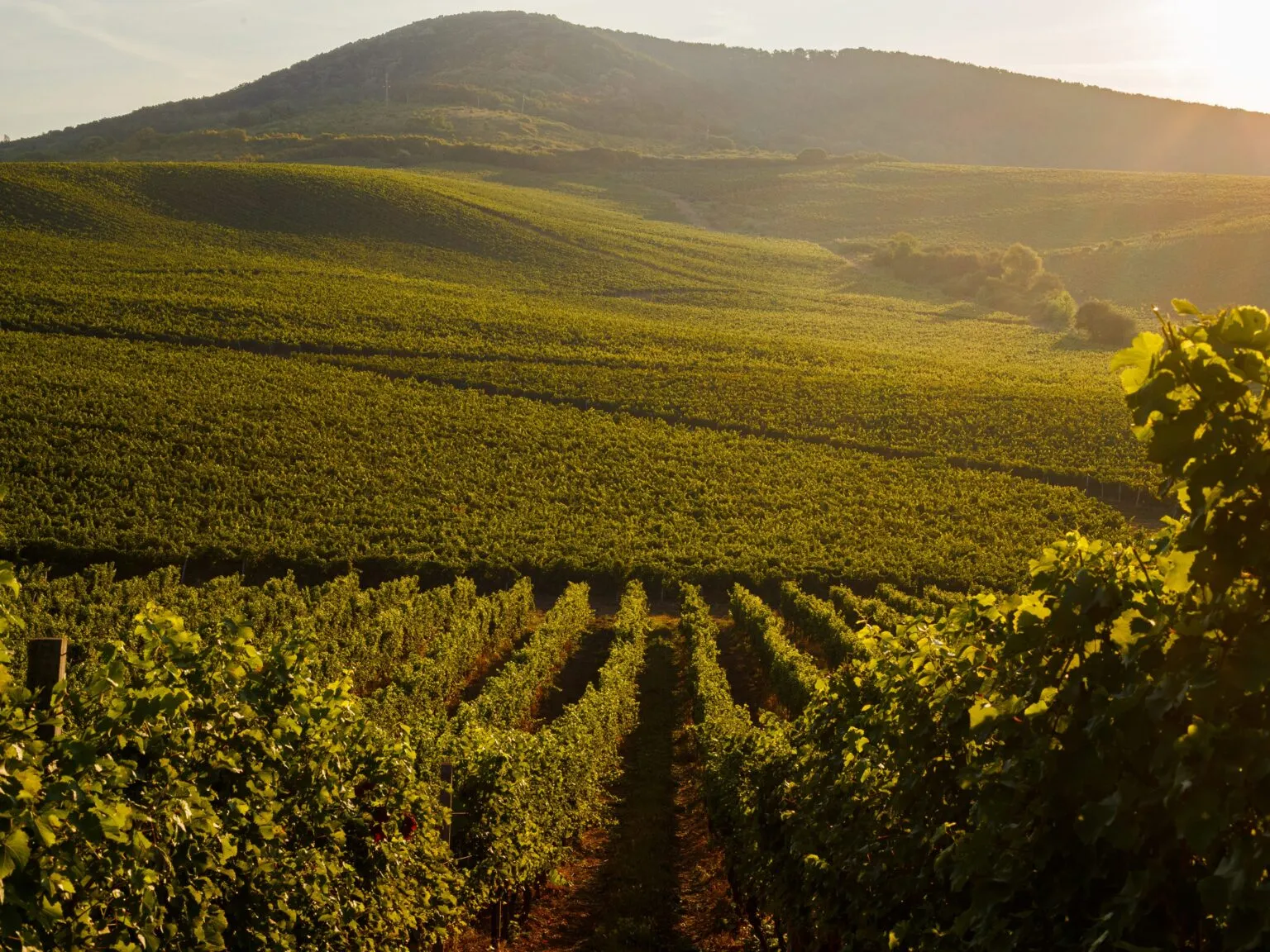
(📷 Photo of vineyards in the Zakarpattia region from BRAND UKRAINE/ukraine.ua: Ukrainian wine / Chateau Chizay: About us.)
🚜 Notable winemakers in Zakarpattia:
🌿 Northern Regions
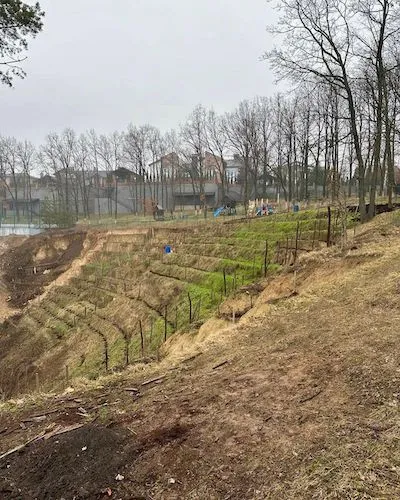
(📷 Photo of newly planted vineyards from Facebook: Biologist Wine Company, 04 Feb 2023, taken by Перший Винний.)
Moving east towards the center of the country 🧭, we find the Northern Regions as an emerging area for innovative winemakers 💡 with a relatively moderate continental climate 🌦 but high risks of frost in winter 🥶.
In particular, we want to highlight the impressive efforts of BIOLOGIST Winery (крафтова виноробня під Києвом) developing sustainable, low-intervention, biodynamic winemaking 🧑🌾.
Despite being located near Kyiv in the Northern Regions, they also use grapes from the Odesa region in southern Ukraine 🌅. But now, at least in part influenced by climate change and global warming 🌡️, they are working to expand their vineyards around Kyiv and further increase production with locally grown grapes 📈.
🌅 Black Sea Region
Next we head straight south 🧭 and look at probably today the largest and most productive wine-growing area in Ukraine, the Black Sea Region 🌅. Wine has been made in this area since ancient times when Greeks and later Trypillian civilizations spread across this part of Ukraine 🏛️.
Stretching along the Black Sea coast, this wine region offers diversity with continental and maritime climates and boasts a large number of winemakers 👥 across all its subregions.
The furthest east is Kherson, which is partly occupied since 2022.
The first subregion we want to focus on is the one west of Kherson and right by the Black Sea, Mykolaiv 🌊. While the region also has vineyards further inland, the remarkable Beykush Winery produces a wide range of different wines of all styles here surrounded by water in the Dnieper–Bug estuary. We particularly like their experiments with different types of concrete eggs and amphorae, reviving and reinterpreting the wine-growing heritage of this area.
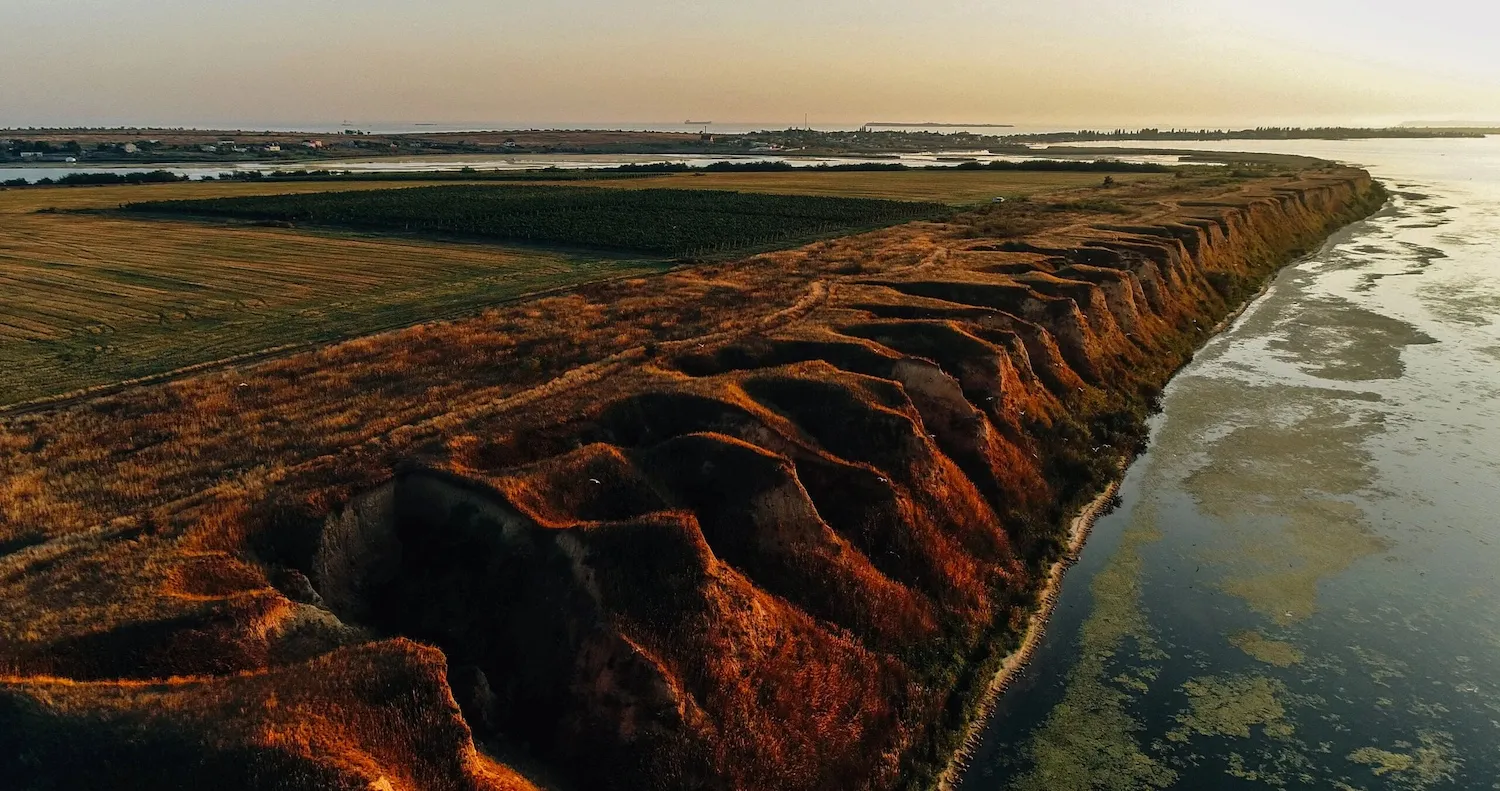
(📷 Photo of vineyards in the Mykolaiv region from Beykush Winery.)
Moving west along the Black Sea coast 🧭, the Odesa region is home to most Ukrainian wine producers. Over 100 wineries take advantage of the climate dominated by milder winters and hot dry summers 🌤, offering favourable wine-growing conditions 🍇.
🚜 Notable winemakers in the Odesa subregion:
- Frumushika-Nova 🐑
- SHABO 🍷
(SHABO is the first Ukrainian winery we came across back in 2019.
We tasted an interesting & complex 2015 Grande Reserve Cabernet-Merlot 💡.)
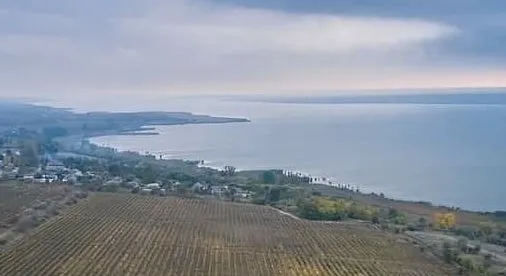
(📷 Photo of vineyards from Instagram: villa_tinta_winery, 15 Dec 2020.)
Especially the far south-western corner called Prydunaiska Bessarabia or Danube Bessarabia is a literal hot bed of Ukrainian wine production ☀️. A couple of wineries in the region are using the shores of the largest natural freshwater lake in the country, Lake Yalpuh or Yalpug, to grow their vines. To the west and south, Danube Bessarabia shares borders with Moldova 🇲🇩 & Romania 🇷🇴.
🚜 Notable winemakers in Danube Bessarabia, part of the Odesa subregion:
📸 The Power of Pictures - a Tribute to Arsen Fedosenko
Wine as a product is always closely connected to a particular location 🏞️. What makes up that location including a wide range of environmental factors is often also summarised with the concept of “terroir” 🎓.
It can be difficult to clearly describe and communicate what makes a place so special. Often, it is much easier to give an impression of an area with photos 📸 of a vineyard 🌿, the surrounding landscape 🏞, the grapes 🍇, the winemakers 🧑🌾 and the production facilities ⚗️.
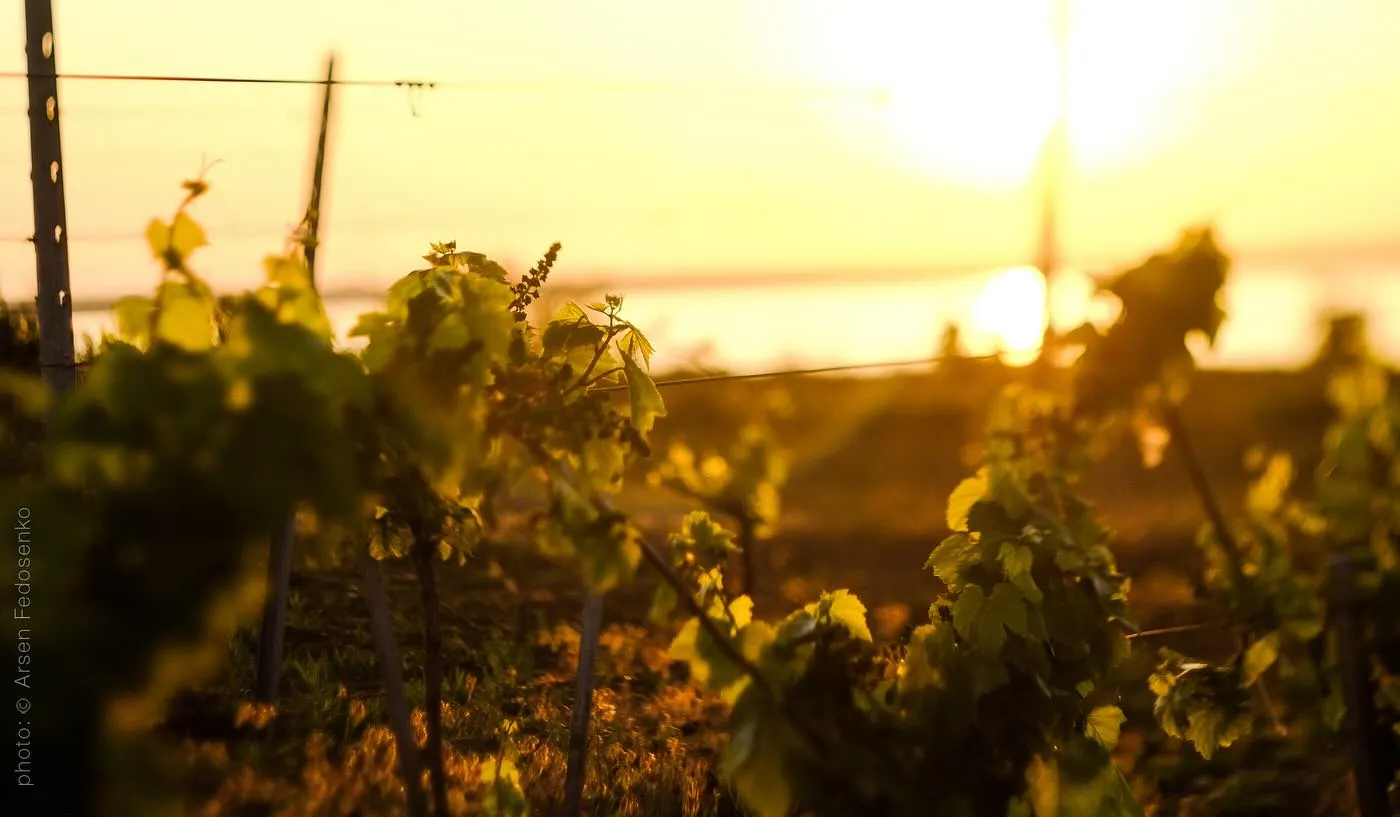
(📷 Photo of sunset over Beykush vineyards from Facebook: Beykush Winery, 10 Jun 2024 by Arsen Fedosenko.)
Images are a powerful way to communicate.
When we prepared our private wine tasting
and researched Ukrainian wine 🔎, we regularly came across photos by one
particular photographer: Arsen Fedosenko.
He worked with a wide range of wineries across all of Ukraine and was on
an enormous mission 📸😍🇺🇦:
“I want the world to fall in love with Ukrainian wine through art photography.”
(✝ Arsen Fedosenko, 1977-2024, photographer 📸, sommelier 🍷, winemaker 🚜 - and “Hero of Freedom” 🪖)
It is amazing to see how he captured Ukrainian winemaking with stunning, impressive and creative photos 👏. So it was sad to learn that he was killed in the war, right around the same time when we first discovered his photos.
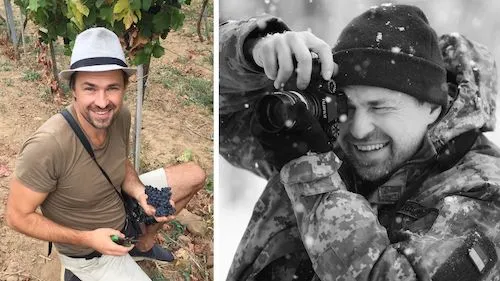
"Captain Arsen Fedosenko, a photographer for the Media Center of the UAF Strategic Communications Department, died at the front on June 10, reports the UAF StratCom."
(Institute of Mass Information, Kyiv, 11 Jun 2024: Military photographer Arsen Fedosenko killed in combat)
This loss has been noticed in the wine world. In the internationally renowned wine publication Decanter he is described as:
”talented photographer, designer and artist, as well as a passionate wine enthusiast and aspiring winemaker”
(Decanter: Ukrainian wine photographer Arsen Fedosenko dies in war, June 2024)
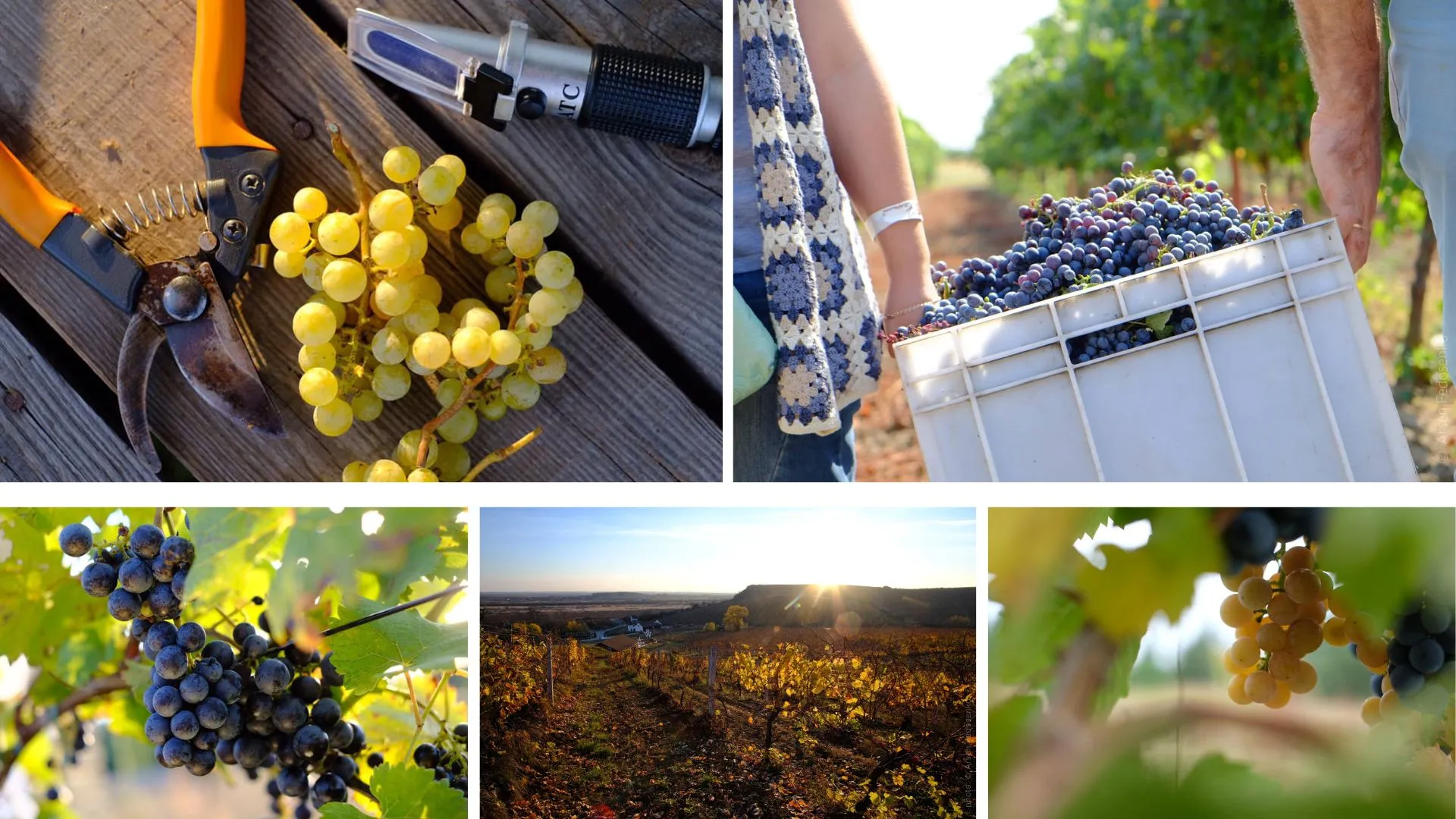
On the Wine Travel Awards (WTA) website, he wrote in his own words:
“The main goal of my project is to restore viticulture throughout Ukraine. For me, viticulture and winemaking is a way to change the paradigm of the consumer to the paradigm of the creator. Grapes have a magical ability to fill places with new meaning, to be a stimulus for the economy and tourism. Wine is a product of the area, so it is always unique.”
(✝ Arsen Fedosenko, 1977-2024, photographer 📸, sommelier 🍷, winemaker 🚜 - and “Hero of Freedom” 🪖)
We have never met him. But we understood more about Ukrainian wines and vineyards 🍇 through his eyes, through his photos 📸. We like to think that he would be happy to know that his work continues to have an impact and his photos are being used to help people learn more about Ukraine, its wines, its people and its culture.
Making the world aware of what is happening in Ukraine 🤬, every day, and how it affects ordinary lives is one of the reasons why we think now is the time to discover and drink Ukrainian wine 🇺🇦.
Most, if not all winemakers, businesses and families in Ukraine are going through unimaginably difficult times 😥. Recognising this and supporting the whole country 💙💛 during this time is a key motivation for us to taste, explore and promote Ukrainian wine 🍷.
(📷 Cover photo from Wines of Ukraine.)
🔗 Learning More & Tasting Ukrainian Wine
If you are curious to explore Ukrainian wine in more detail and find out how you can get your hands on some bottles to taste and experience the full range of styles and flavours, you can read about our private tasting “🍾💙💛 Sipping & Supporting Ukrainian Wine 🇺🇦🍷” that we organised with support and guidance from UK-based Ukrainian wine expert Sera 👩🏻🔬 & the Ukrainian Wine Company 🛒.
If you would like to organise a Ukrainian or other wine tasting for your friends, business partners or colleagues 🍾, please get in touch 👋.
We are more than happy to organise a tasting for you & with you. 📑
We provide expert guidance on themes, topics, wines & venues. 💡
Please Share!
First published in November 2024.